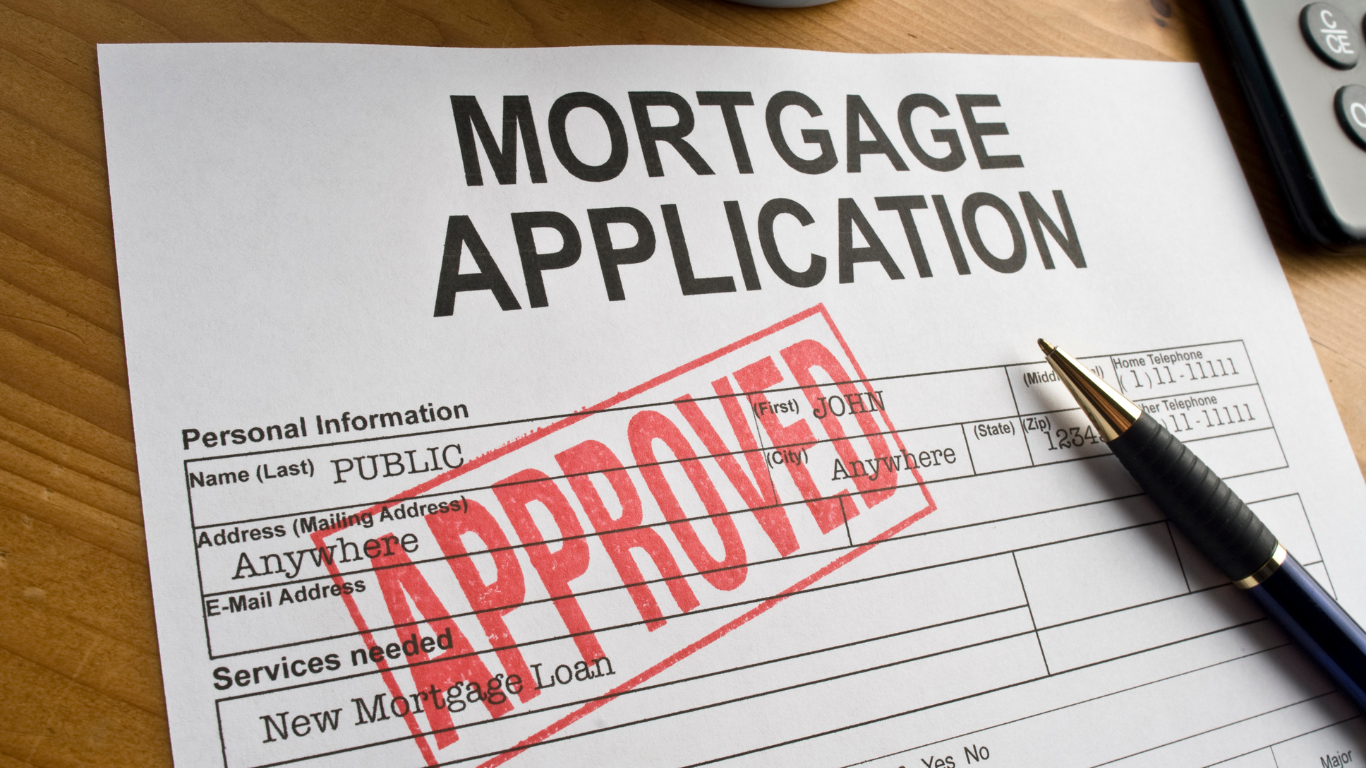The Essential Buyer's Guide to Own a Home

Step 1: Determine Your Budget
Before you start looking for a house, it's essential to know how much you can afford to spend. Consider your income, expenses, and any other debts you have. You can use an online mortgage calculator to get an estimate of your monthly payments.
Be aware of loan officers who only give you a partial mortgage-payment estimate like the Principal & Interest only payment (P.I.). You want to know the full P.I.T.I. payment. It’s important to know the full obligated payment of homeownership. Avoid as many surprises as possible, as early as possible.
BY THE WAY-
WHAT'S THE COST OF HAVING A BUYER'S AGENT HELP YOU FIND A HOME?
In traditional sales, Home Buyers do NOT pay agent fees to help you find, negotiate and secure your dream home! No hidden fees nor "baked" into your loan. It's 100% paid for by the Seller. Awesome right!?

Understanding P.I.T.I.
P.I.T.I. stands for principal, interest, taxes, and insurance (home ins). It's the total monthly payment you'll make on your mortgage. Use a mortgage calculator tool to calculate your PITI and ensure you can afford your mortgage. Make sure to factor in PITI when determining your budget for buying a home. Here’s a good mortgage calculator to use; it gives an educational breakdown.

Defining P.I.T.I.
Deeper dive-
- Principal: This is the amount of money you borrowed to buy the house. Your monthly payment will go towards paying off the principal.
- Interest: This is the cost of borrowing money. It's calculated as a percentage of the principal and is included in your monthly payment.
- Taxes: Property taxes are based on the assessed value of the property and are paid to the local government. They are typically included in your monthly payment. (Usually referred to as an “impound account”).
- Insurance: Homeowner's insurance protects your home and possessions against damage or theft. It's also included in your monthly payment.
For a better visual of this stuff, plug away into this calculator for a better understanding.

Beware
Some lenders only share the P.I. (leaving out the T.I. portion) to avoid giving you sticker shock. Even Zillow does this. Next time you’re on Zillow (however try not to be) take a look at the monthly payment it’s promoting somewhere on the right saying something like: "Est. payment: $2019/mo" showing only the partial payment. It’s absolutely misleading.
So, when you’re ready to talk to a lender about getting pre-approved for a home loan, you’ll sound like a pro when you ask for your estimated monthly payment to be broken down in P.I.T.I.

Step 2: Get Pre-Approved for a Mortgage
Once you know your budget, it's time to get pre-approved for a mortgage. This involves providing financial documentation to a lender, who will then determine how much money you can borrow- IT'S SIMPLE. Usually, it’s your last two (2) bank statements and last two (2) years of taxes. Pre-approval helps you determine what homes you can afford and gives you a competitive advantage when making an offer. In fact, many Sellers won’t even let you into their homes unless you’re pre-approved and most Listing Agents require a pre-approval letter to accompany your offer.
How much mortgage can you qualify for?
General rule of thumb- The 28/36 rule used by many lenders states that your monthly mortgage payment shouldn't be higher than 28% of your gross monthly income and your total debt (which includes your housing costs plus any long-term obligated payments like student loan and car payment shouldn't exceed 36% of your monthly income).
However, each person has different circumstances that a loan officer will address case by case.
Another general rule-
The total loan amount a lender might lend you is about 3 X's your annual gross income. So if your annual gross (pre-tax) income is $100,000 then you'd qualify for $300,000... but don’t get lost in the weeds with math, ratios and calculations. A good loan officer will do the work for you and put together a few options for you. Loan Officers have access to several loan products and will shop them out for you- so you don't have to.

Understanding real estate agents and loan officer relationships
...and how it benefits you:
It’s important to understand that you can use any home-lender institution you want.
Perhaps you want to use the same bank you’ve been banking with for years where you have an established checking account and history. Maybe it’s one of those commercialized lenders you saw on that last Super-Bowl commercial like Rocket Mortgage.
It’s also important to know the (bad) reputation your bank might be carrying may affect the Seller’s decision before choosing you for your dream home- which you need to avoid if the bank's reputation is not perceived well by Sellers. Sellers will consult their experienced Listing Agent and ask them if they should entertain an offer (no matter how strong it is) that is being financed by a big commercialized bank.
I won’t name any more names but some big banks are as slow has horse carriages. To be competitive against other Financed Buyers, it’s important to consult with your real estate agent about which loan product you should present with. An experienced Buyer’s agent will have relationships built with trusted lenders with great industry reputation that are well known in the local community, which will go a long way- improving your offer.
Here's a helpful tip:
Instead of shopping for lenders yourself, just ask a real estate agent to recommend one of their preferred lenders.
Just text: “Lender Please” to 916-218-8071 for local & reputable references.

Step 3: Find a (good) Real Estate Agent
A real estate agent can help you find a home that fits your budget and your needs. They can also help you navigate the complicated process of buying a home. Look for an agent who is familiar with the neighborhoods you're interested in and has experience working with buyers in your price range.
Tip: How to pick an agent out of THOUSANDS:
In Sacramento and Placer County alone there’s over 12,000 agents. The average agent has about 9 years of experience- so 9 yrs. should be your minimum requirement. Also, does the agent have a reasonable online presence? If not, move on. An active agent will have plenty of online reviews so check their Facebook reviews, Google reviews and Yelp. If there’s less than five- even if all positive, move on. Make sure they are full-time agents and don’t have a part-time job or worse, they have a full-time job and real estate is their part-time job. (Nothing wrong with that because we all need to start somewhere but have them practice on their family members first- not you.) How much time did the agent spend on your initial consultation? Did it feel basic or did the agent have you complete some kind of home-questionnaire form to better understand your wants and needs in a home. Most importantly, make sure you connect with their personality as you’ll be spending lots of time with this agent looking at homes.
Finally-
When interviewing, ask the agent if they're a member of the National Association of Realtors (N.A.R.).
Not every agent is a Realtor. Realtors are held to a much higher ethical standard and are bound to put their clients' interests before their own while maintaining integrity and honesty to all parties.
Meet a great agent here! https://38degreesrealestate.com

Step 4: Start House Hunting
Now before you start housing hunting, you need to be clear who you’ve chosen to be your designated real estate agent and loan officer. It’s important you commit to only one agent and one loan officer. This will be your dream team in order to acquire your dream home. Now that you have a budget (via a loan officer) and a real estate agent, it's time to start looking at homes. Consider what you need in a house, such as the number of bedrooms, bathrooms, and square footage. Visit open houses, tour homes with your agent, and ask questions about the features of each property.
Here's an amazing home-explorer tool that helps you learn the different pockets of Sacramento.

Step 5: Make an Offer
Once you find a home you love, it's time to make an offer. Your real estate agent can help you negotiate the price and terms of the offer. Be prepared to provide an earnest money deposit, which is a percentage of the purchase price that shows you're serious about buying the home.
Tip: Ask your agent to present the different kinds of strategies that will help improve your success of securing your dream home.
A good agent will do more than just write up an offer.
The moment you like a home, a good agent is immediately attempting to build a sincere rapport with that listing agent a.k.a. the Seller’s gatekeeper. Being a sharp negotiator is essential but if an agent’s ego is too big, it can kill your deal. There’s a time and place for smart negotiating. Find an agent that knows how to check their ego at the door, and put your home goals first by knowing how to present your offer and put you in the best light possible. Real-estate agency isn’t rocket science; it’s a relationship-first business backed by strategic experience.
Be the first (or last) to make an offer
The phrase “You snooze, you lose” is especially relevant for real estate buyers.
That’s because the buyer that makes the highest offer doesn't always get the home. In many cases, it’s the one that makes the first offer.
If the seller is in a rush to sell, and the first offer is a good one, it’s quite possible the seller may simply accept the offer on the spot.
So when looking for a great deal, you must be ready to make the FIRST offer.
To make sure that happens, you MUST get your finances in order. Before you start making offers, make sure sure to have your pre-approved loan by the bank (and if you’re able to pay in cash, even better).
And once you’re pre-approved, don’t delay in making offers. Work with our team to establish the parameters for a good deal. And as soon as a deal that meets those requirements hits the market, make an offer in the same day.
Also, as you wait for a great deal to hit the market, we can keep an eye out for properties that have been stuck on the market for a long time. The owners of these homes could be more willing to sell at a discount, because they’ve been stuck paying a mortgage for the entire time it’s been listed.

Step 6: Get a Home Inspection
Once you get your offer accepted, you'll want to do your due dilegence with inspections before finalizing the purchase. It's essential to have a home inspection.
An inspector will evaluate the property for any issues, such as plumbing or electrical problems, and provide a report. Use this report to negotiate repairs or a lower price with the seller. As long as both parties are reasonable, solutions can always be found. Your agent will be able to address any of your concerns. Buying and Selling a home is very emotional for both Buyers and Sellers and a good agent is instrumental in buffering any tension between the two parties to find a good solution, shall anything arise.
Tip: Be sure you have enough money saved up for the upfront-inspection costs after getting your offer accepted.
***This is the No. 1 surprise to Buyers- after getting into contract- mainly because lenders and agents fail to inform you.
Once your offer gets accepted, you have a few days to do the following:
Send in your earnest money deposit to escrow (not to be confused with “down payment”). It’s usually 1% of your offer price, but don’t worry; those funds come back to you when you close on your home. Think of it as a good-faith deposit you get back later. (However, talk to your agent on how that earnest-money deposit can be at risk of losing.)
Make sure you have saved up for inspections.
Here's a general rule of thumb to save for: On average, home inspections cost about $475. Plus termite inspections are about $120 and if you want to get any other inspectors such as sewer and roof, that’s about $200 a pop. Don’t forget, you’ll need to order an appraisal with your lender which is about another $600. (Some lenders might be able to waive this cost if you ask nicely- but you didn’t hear this from me).
Please note: Inspections are completely optional (with exceptions to VA loans) and not mandated (but highly, highly advised that you do them).

Step 7: Funding your loan
If your offer is accepted, it's time to finalize your mortgage. By this time, you’re done with inspections and have addressed any concerns from inspections and now you just need your loan to fund (to pay the Seller).
Your lender will work with you and escrow to provide the necessary documentation in order to finalize the loan.
You'll need to bring your cash-to-close for your down payment, which is a percentage of the purchase price that you pay at close of escrow.
You might qualify for down-payment assistance so be sure to ask you loan officer.
Before you reach this step, a good loan officer will have already prepped you. This is about the time when title and escrow company contacts you to schedule your signing appointment to sign your final closing documents sent by your lender. Eat plenty of potassium to prevent cramping in the wrist from signing because the paperwork can be inches thick!
Remember, if the process was easy, then everyone would be a proud homeowner. Choose the right dream team to partner up with to streamline and simplify your home-buying process.
Remember: It takes about 30 days on average to close on a home - so time your affairs accordingly. If you rent and need to notify your landlord, strategize with your agent about the timing, before doing so.
Ask the Seller to pay closing costs
Though the buyer is typically expected to pay for a number of closing fees, (especially those related to the origination of the loan), it’s not a law written in stone. Like pretty much everything in real estate, closing costs are negotiable.
Of course, sellers don’t like to sell homes for less than their bottom line. Not just because they don’t want to lose more of their earnings, but also because there’s always an ego element attached to any home sale.
Home sellers are keenly aware of how much their neighbor's homes sold for, and would hate to sell their home for less.
If the sellers are adamant against bringing down their asking price, we can negotiate for the seller to cover the closing costs.
Not only does this allow the seller to save face and keep a larger final price, but it could also save you thousands of dollars.

In Conclusion
Don’t believe the naysayers who are trying to tell you it's a bad time to buy - as if they can predict your future success. Not even Warren Buffett can predict the markets, but he did say if the numbers make sense to you, then it's probably a good deal for you. Work with your agent to see if your numbers work for you.
Though it may take effort and patience, if you work together with a knowledgeable and experienced real estate agent, and know where to look, you’ll also be able to find some of the best possible deals in the area.
